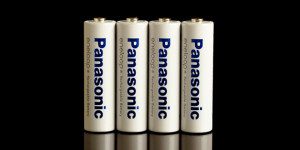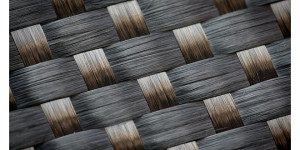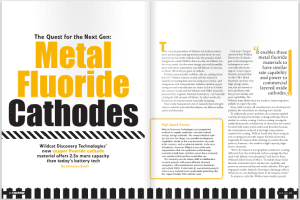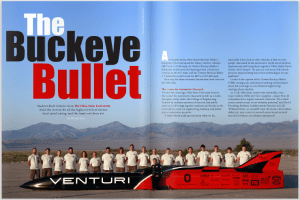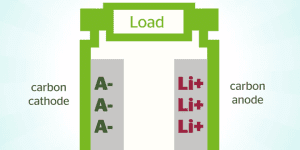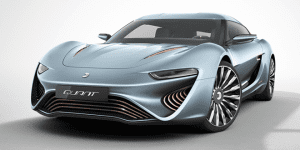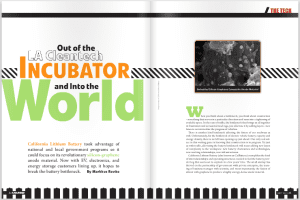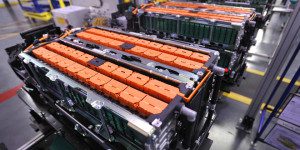The DOE is supporting six applied battery research projects, with the objective of developing cells that provide energy density of more than 200 Wh/kg, along with long cycle life and excellent abuse tolerance. All six projects are using some form of silicon-based material for the anode. A team led by the Argonne National Laboratory is… Read more »
Search Results Found For: "lithium metal"
Automotive segment consumes 10.5% of global advanced battery production
Batteries are big business. According to the latest Advanced Battery Tracker from Navigant Research, more than 6 billion advanced battery cells were sold in 2013, representing 40 gigawatts of power capacity and more than $13.4 billion in sales (a modest increase over 2012’s $12.8 billion). The majority of these batteries were manufactured in China. Most… Read more »
Swedish researchers: Carbon fiber can serve as both body panel and battery
It’s one of the dilemmas of EV design: It’s imperative to keep a vehicle’s weight as low as possible, but the most critical component – the battery – is necessarily quite heavy (and bulky). A little outside-the-box thinking yields an elegant solution – make the box the battery. In other words, design a battery material… Read more »
Wildcat’s new copper fluoride cathode material offers 2.5x more capacity than today’s battery tech
The current generation of lithium-ion battery materials is quickly approaching its theoretical limit. In commercial layered oxide cathodes, like the popular nickel-manganese-cobalt (NMC), there is only one lithium ion for every metal. So, the most energy you could possibly store with those materials is one full lithium in and out, or about 300 mAh per… Read more »
The Buckeye Bullet: A student-built EV that’s racing towards 400 mph
As it stands today, Ohio State’s Buckeye Bullet 1 holds the US record speed for battery electric vehicles (BEVs) at 314.958 mph, its Venturi Buckeye Bullet 2 holds the world record for hydrogen fuel cell electric vehicles at 302.877 mph, and the Venturi Buckeye Bullet 2.5 holds the world record for BEVs at 307.666 mph. … Read more »
Dual-carbon battery claims to be longer-lasting and safer than Li-ion
Seldom does a week go by without an announcement of a promising new battery technology – but the road from the laboratory to the auto dealership is a long one, and there’s no knowing which of today’s breakthroughs might enable tomorrow’s mass-market EVs. This week’s news, from Power Japan Plus, almost sounds too good to… Read more »
Sporty prototype demonstrates flow cell battery technology
Among the many electrified vehicles on display at this week’s Geneva Auto Salon was one that demonstrates a new and possibly revolutionary energy storage system. Leichtenstein-based nanoFLOWCELL’s QUANT e-Sportlimousine, a sleek sports model with gull-wing doors, uses flow cell battery technology. Scientists at GE Global Research and Lawrence Berkeley National Laboratory announced that they were… Read more »
CalBattery’s new SiGr anode material hopes to break the battery bottleneck
California Lithium Battery took advantage of national and local government programs so it could focus on its revolutionary silicon-graphene anode material. Now with EV, electronics, and energy storage customers lining up, it hopes to break the battery bottleneck. When you think about a bottleneck, you think about constriction – something that moves in a particular… Read more »
University of Michigan and Ford open new battery lab
A new $8 million battery lab opened this week at the University of Michigan, the result of a collaboration between the university, Ford Motor Company, battery suppliers, and the state and federal governments. The lab is actually a battery manufacturing facility in which state-of-the-art methods will be used to make test batteries that replicate the… Read more »
Model S catches fire after collision
It was a horrible sight – a motionless Model S on a rain-slick Seattle road, its front half consumed in flames. No one was hurt, and the real flames were confined to a small section at the front of the vehicle. How far will the symbolic fire spread? It’s too early to say. If it… Read more »





